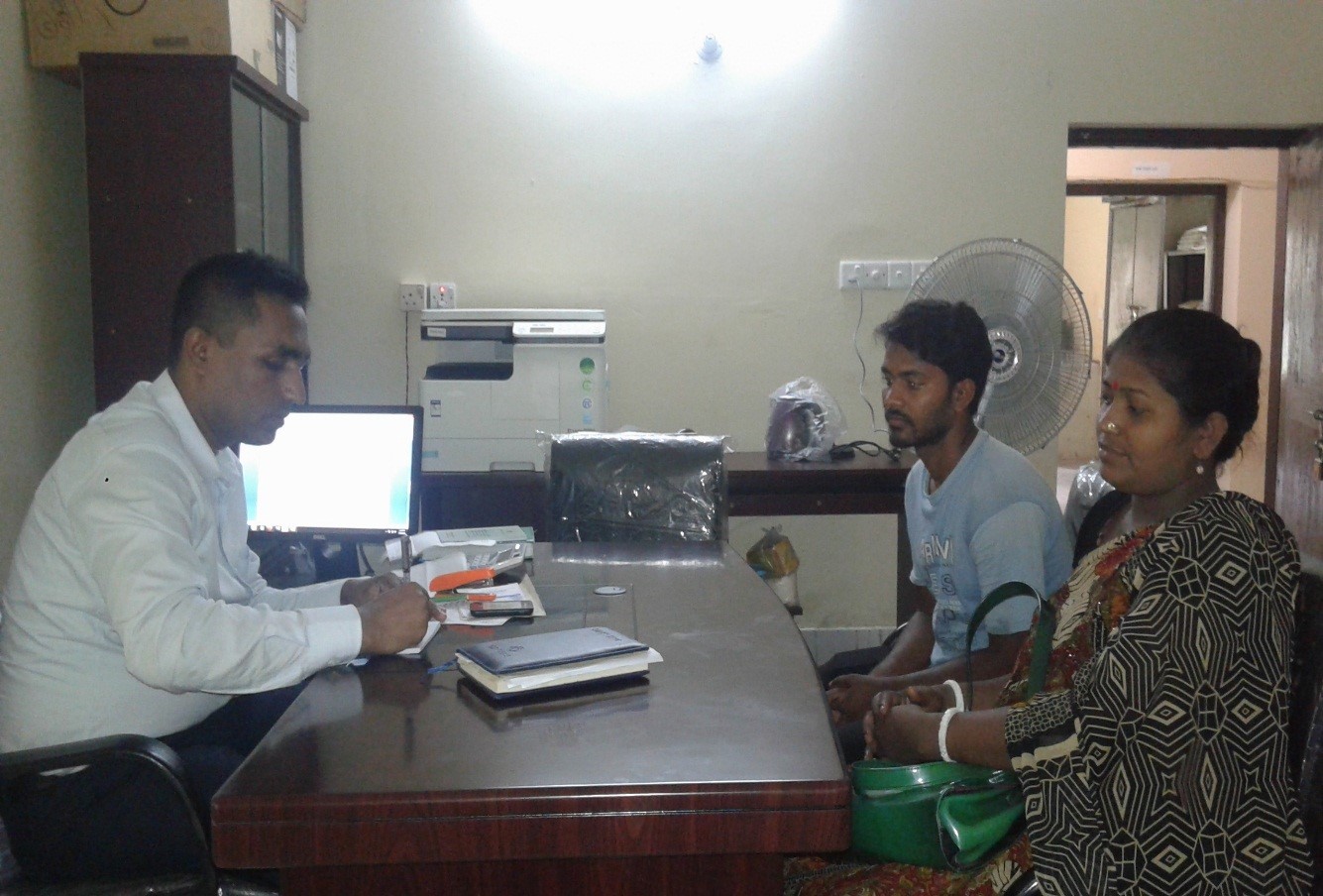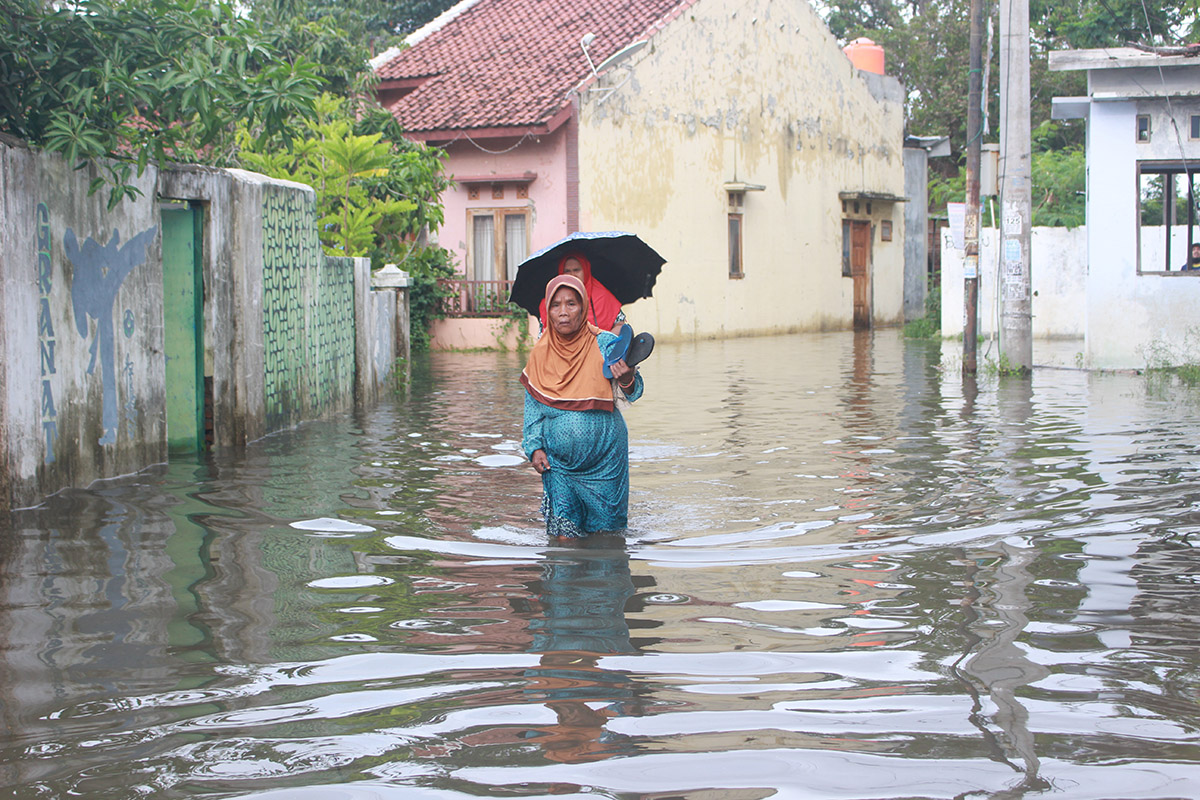“Legal aid ensures access to justice”
September 26 Access to justice is a fundamental human right, but as Mahdy Hassan, 24, a Correspondent from Dhaka in Bangladesh explains, gaining that access is not an easy task. That’s where an innovative legal aid programme can help.
Access to justice is a fundamental human right, but as Mahdy Hassan, 24, a Correspondent from Dhaka in Bangladesh explains, gaining that access is not an easy task. That’s where an innovative legal aid programme can help.
Let me tell you a story of a 24-year-old Bangladeshi single mother of two children, who was dismissed from her position of operator at a garment factory on 11 June 2014, without due process and compensation.
As per the legal provision of ‘the Bangladesh Labour Act, 2006’, a leading national legislation to protect the workers’ rights in Bangladesh, her employer was required to provide her BDT 22 000, the entire contributions during her four-years stint at the factory. With the assistance of the Workers Legal Aid Cell, the dismissed worker was able to obtain part of her entitlement.
In Bangladesh, female workers face particular discrimination in the workplace, including denial of maternity leave, child care on site, sexual and verbal harassment and termination of job without following due process. Perhaps this is a scenario familiar in other South Asian countries.
However, it is worthy to mention here that Honourable Prime Minister of the People’s Republic of Bangladesh, Sheikh Hasina, made a declaration in 2013 to establish a separate Legal Aid Cell Office aiming to provide legal aid free of cost for workers who are deprived of access to justice. Although the government enacted the Legal Aid Services Act (LASA) 2000 (last amended in 2013), many workers continue to be victimised by their employers.
People around the world saw the shocking disaster of the Rana Plaza collapse on 24 April 2013. In the aftermath of that incident, a new concept of providing legal aid for the workers was endorsed by the Ministry of Law, Justice and Parliamentary Affairs. The National Legal Aid Services Organisation (NLASO), a government national body responsible for providing free legal aid services, established for the first time a Worker’s Legal aid Cell at the premises of Dhaka Labour Court on 2 May 2013, with technical support from the Justice Sector Facility (JSF) project of the United Nations Development Programme and DFID.
The Cell is now fully functional to provide free legal aid services including providing legal advice, conducting mediation to settle disputes through an Alternative Dispute Resolution process, and drafting grievance petitions. The Cell is equipped for engaging Legal Aid Panel Lawyers and representing cases in the labour courts, and raising awareness about worker’s rights in industrial areas. Its mandate includes providing capacity development of panel lawyers, running a hotline services for both national and migrant workers in providing information, and conducting training programs for trade union leaders.
Workers from all 17 districts of Dhaka division are now enjoying the legal aid services from the Cell. Since its inception, it is reported by NLASO that a total of 6,027 workers accessed the services, and that BDT. 2,759,618 (approx. $ 34,931) was recovered from the employers as compensation to directly provide the victims thanks to the intervention of the Cell.
To expand the legal aid services, NLASO has recently established another Worker’s Legal Aid Cell Office at Chittagong labour court. It became fully operational on the 21st of July 2016. UNDP Bangladesh provided technical support under its Women’s Access to Justice Project to establish the Cell, as Chittagong is considered to be the commercial capital of Bangladesh, having the largest number of industries in different sectors such as RMG, ship breaking, steel manufacturers, and food packaging. To safeguard the interests of thousands of workers employed in those sectors, the Cell will be providing more or less similar services as those provided by the Dhaka Cell Office. The Cell is now under the direct supervision of the Chairman of the labour court. A special committee will be formed soon to monitor the daily activities. In addition, NLASO will monitor the progress.
It is worthy to note that workers from different areas are coming to both Cells to avail themselves of legal aid services. However, the two Cells should be now well equipped to utilise innovative ways – such as disseminating SMS, developing and distributing awareness materials like posters and leaflets, broadcasting public service announcement through community radio and television, and using social media – so that target people can reach the Worker’s Legal Aid Cell.
Two Cells are not adequate to provide legal aid services to the workers across the whole of Bangladesh. The Bangladesh government, policy makers, civil society, local and international NGOs, UN specialised agencies, donors like USAID and DFID, and existing labour union leaders and other stakeholders should work altogether to establish more Cells in remaining divisions of the country in order to achieve the goals of Worker’s Legal Aid Cells.
I am confident to say that this Worker’s Legal Aid Cell can be a wonderful model for other countries where the workers are not getting justice because of their economic insolvency. Providing legal aid free of cost to the low income people is one of the most important steps in the access to justice, which is one of the fundamental human rights for all.
Photo credit: NLASO
…………………………………………………………………………………………………………………
About me: Currently, I am working with Relief International, Bangladesh Country Office as TIP Program Associate to assist in implementing U.S. Department of State TIP Office funded project. In addition, I am working as a member of Commonwealth Youth Human Rights and Democracy Network (CYHRDN).
I completed my LL.B. and LL.M. degree from University of Dhaka. I love to write and to conduct research on different human rights and development issues and aspects. I dream a world without hunger, poverty and exploitation.
…………………………………………………………………………………………………………………
Opinions expressed in this article are those of the author and do not necessarily represent the views of the Commonwealth Youth Programme. Articles are published in a spirit of dialogue, respect and understanding. If you disagree, why not submit a response?
To learn more about becoming a Commonwealth Correspondent please visit: http://www.yourcommonwealth.org/submit-articles/
…………………………………………………………………………………………………………………




